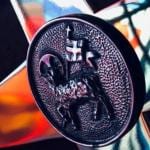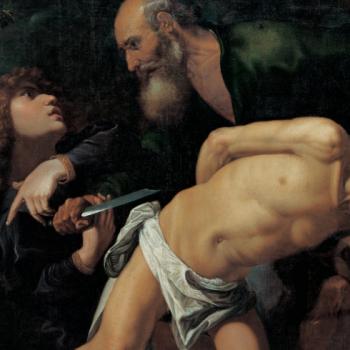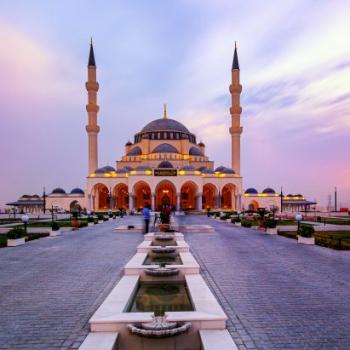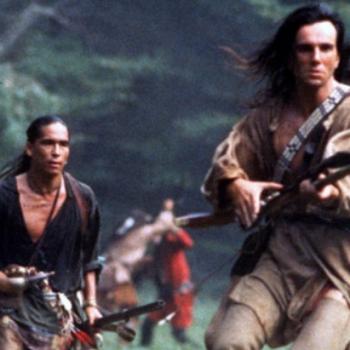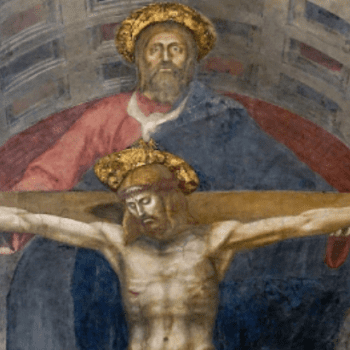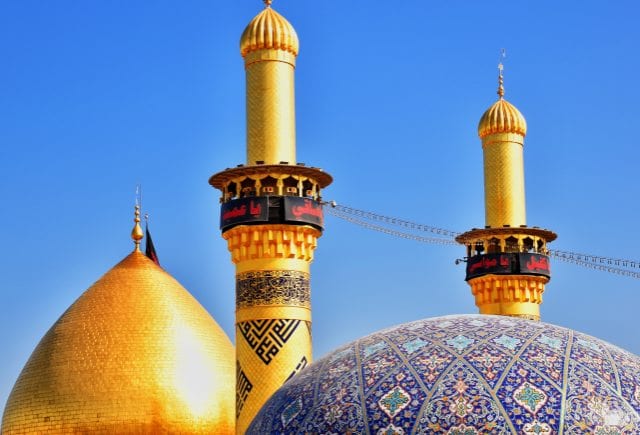
The day of Ashura, which is the 10th day of the month of Muharram, is a noteworthy one on the Islamic calendar. It is remembered as the day that the prophet Nuh (Noah) left his ship after the flood waters abated. It is remembered as the day that the prophet Ibrahim (Abraham), the Father of the three great Monotheistic religions, was born. It is the remembered as the day when the prophet Mussa (Moses) crossed the Red Sea, leading the Hebrews to freedom.
It is also the day on which the Battle of Karbala took place in the blistering sands of Iraq in the year 680, making it the death date of Islam’s most tragic heroes: Imam Hussain ibn Ali, the grandson of Muhammad, who perished battling the forces of the tyrant Yazid. This is a day especially sacred for the Shia community, who place their allegiance strongly with the “Ehl Beht” bloodline of their Prophet’s household. This having been said, all Muslims have ample cause to lament the fall and cheer on the courage of such a distinguished member of Muhammad’s immediate family.
Even as a non-Muslim, I was drawn to research the larger-than-life character of Hussain. I found him to be a compelling and relatable figure, one whom I could admire on the level of a doomed military hero, as well as someone whose strong sense of integrity prevents him from pledging allegiance to a ruler bound to abuse the powers vested in him. He comes off as both a man of deep spirituality and a certain frankness that permeates the writings he left behind. Hussain himself stated that he would rather die than live under a tyrant; which he considered as a living hell, proclaiming “Death with dignity is better than a life of abasement.”
This theme is quite a universal one, one that has been repeated over and again through history, and emphasized in popular culture in every form imaginable. Actually, if Mel Gibson ever got into an Arabian mood, this would make a decent follow-up to Braveheart and The Patriot, at least thematically. And if you’ve read Ballad of the White Horse by G.K. Chesterton, seeing some parallels with King Alfred doesn’t require too much squinting either. Hussain was faced with the choice of caving to powers that be or opposing them for the sake of the Ummah (people/body of believers). This determination is what led him and his family to cross the desert in search of support.
Unfortunately for him and his companions, they were betrayed by those who promised aid, and, grossly outnumbered, had to make a gallant, if inevitably fatal, “last stand” in which almost the entire male line of his family was wiped out. There are various tragic moments, like the death of Ali Akbar, Hussain’s young warrior son, slain fighting for his father’s honor. There is Hussain’s half-brother, Abbas, killed trying to get water for the thirsty children. There is Hussain, displaying a father’s desperation and begging for water when he sees his infant son is likely to die too, only to be answered with an atrocity as the enemy shoots dead the baby in his arms.
This was the price for his defiance, one which he seemed to know he would have to face in the end, one which haunted him in his dreams and the dreams of his sister Zainab. This was “the road of shame” which he was made to walk, along with the rest of his tribe. Not only does the price come in the form of blood, but also in humiliation, as this descendant of warriors is brutally hacked to death in front of his terrified women and children. He goes down swinging as best as he is able, still berating his attackers, reminding him of his noble lineage and the sin they are committing. One narration even has him ask, with a certain biting sarcasm, if the soldier about the slit his throat had said his daily prayers yet.
As a Catholic, he rather reminded me of St. Thomas More, insofar as he was willing to go to his death rather than sign an oath which he could not in good conscience take, and in this plucky nerve in the face of his own demise. Even though Hussain was a trained warrior and St. Thomas was not, it was pretty clear that no matter how valiantly Hussain fought, it would be in vain – at least on an earthly level. In essence, Karbala is a bit like the Islamic Alamo and is remembered to this day as such, as being somehow victorious in defeat. The story lives on, and so does the spirit of it.
And coming at this from a Christological lens, it’s not hard to at least see some passing parallels between the Passion of the Christ and a good man betrayed, beaten, and humiliated. Now, obviously, this shouldn’t be carried too far on a theological level, since Christians believe Christ was God incarnate, and most Muslims don’t even believe the crucifixion occurred. But still, as a Christian storyteller myself, as well as someone with a strong appreciation for integrity, the Passion has always been a guiding light that I cast on all stories to put them into perspective, and I typically have the characters in my stories go through “tastes” of the passion, and in ways that they may even be unaware of, they share in a mystical unity with the redemption of the cross.
And it might be said, from that perspective, that whether Hussain knew it or not, believed it or not, he was in some way united to the mystery of the cross as one laying down his life for the good of others, believing firmly that he was being true to the honor of God by doing so. Even in the midst of his own grief, watching his family members slain, he never gave up hope that God had a plan in it all, and that carried him through to the consummation of his “martyrdom”. That, I believe, made him very closely connected in spirit to Jesus indeed.
So, here’s my own little Hussain story. Due to an illness I came down with, I had a pseudo-feverish dream about Hussain. In the dream, he came up to me and handed me a pastry of some sort. I said thank you because I was really hungry, being somewhat unable to eat due to my lips being swollen. The gesture was appreciated, even in dreamland, and even though I didn’t think much on it at first, some of my Muslim friends were really quite enthusiastic about it when I told them. Seeing such figures in dreams is considered quite a blessing, and the more I researched it, the more I discovered things that gave me pause.
From what I’ve read, Hussain and his father Ali were no strangers to handing out food to the needy, and even more tellingly, at the burial places of Ali and Hussain there seems to be a tradition of handing out bread to pilgrims. When I ran across a video of this on YouTube, it gave me pause because it greatly reminded me of the feeling I had in the dream. So, if I did have a brush with the real deal in the realms between the Dunya (this world) and Jannah (paradise), all I can say is, I’m honored. And I hope that pastry was cheese and not prune!
Blessed Muharram and Ashura to all of those keeping these stories alive!

